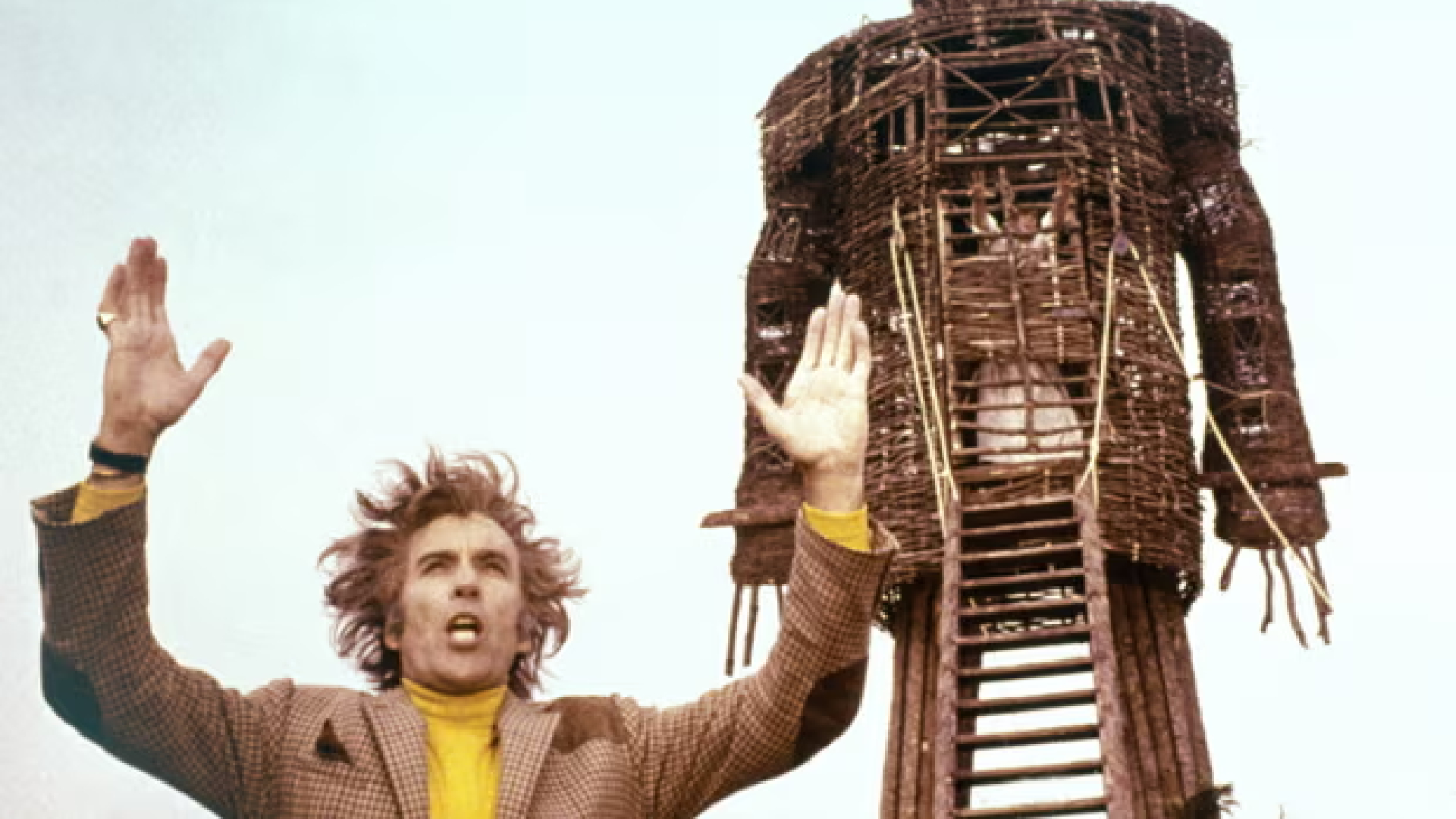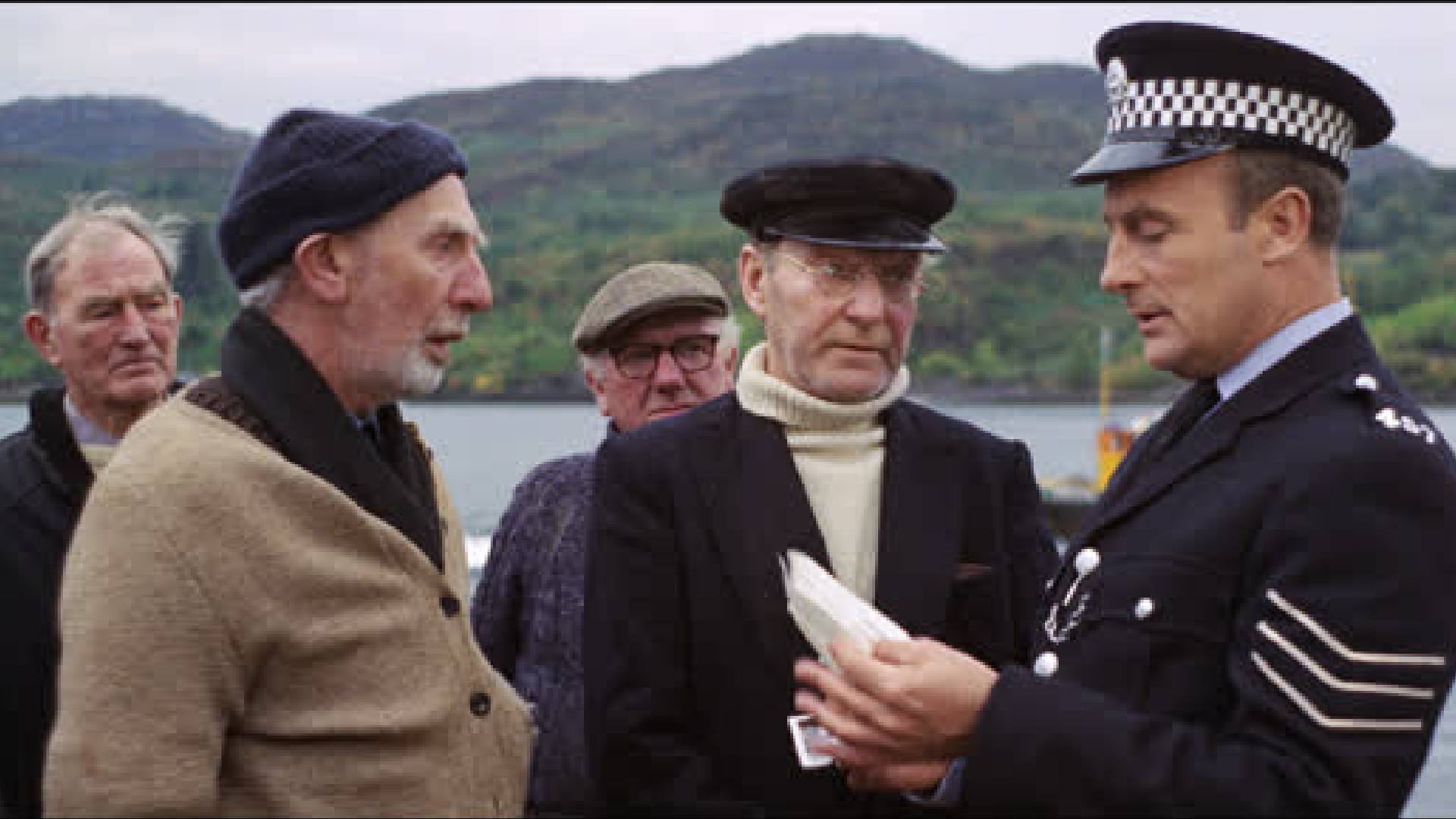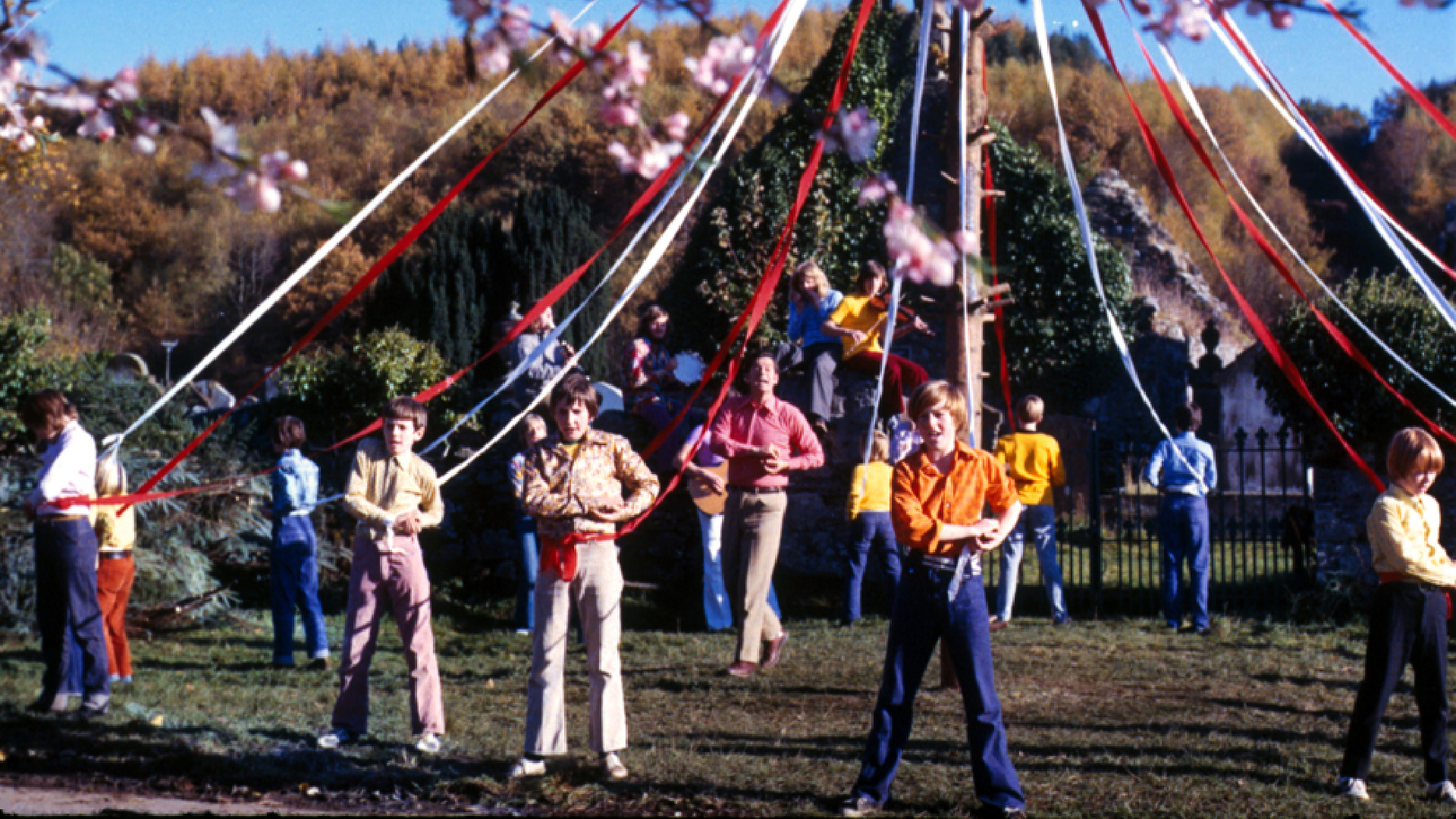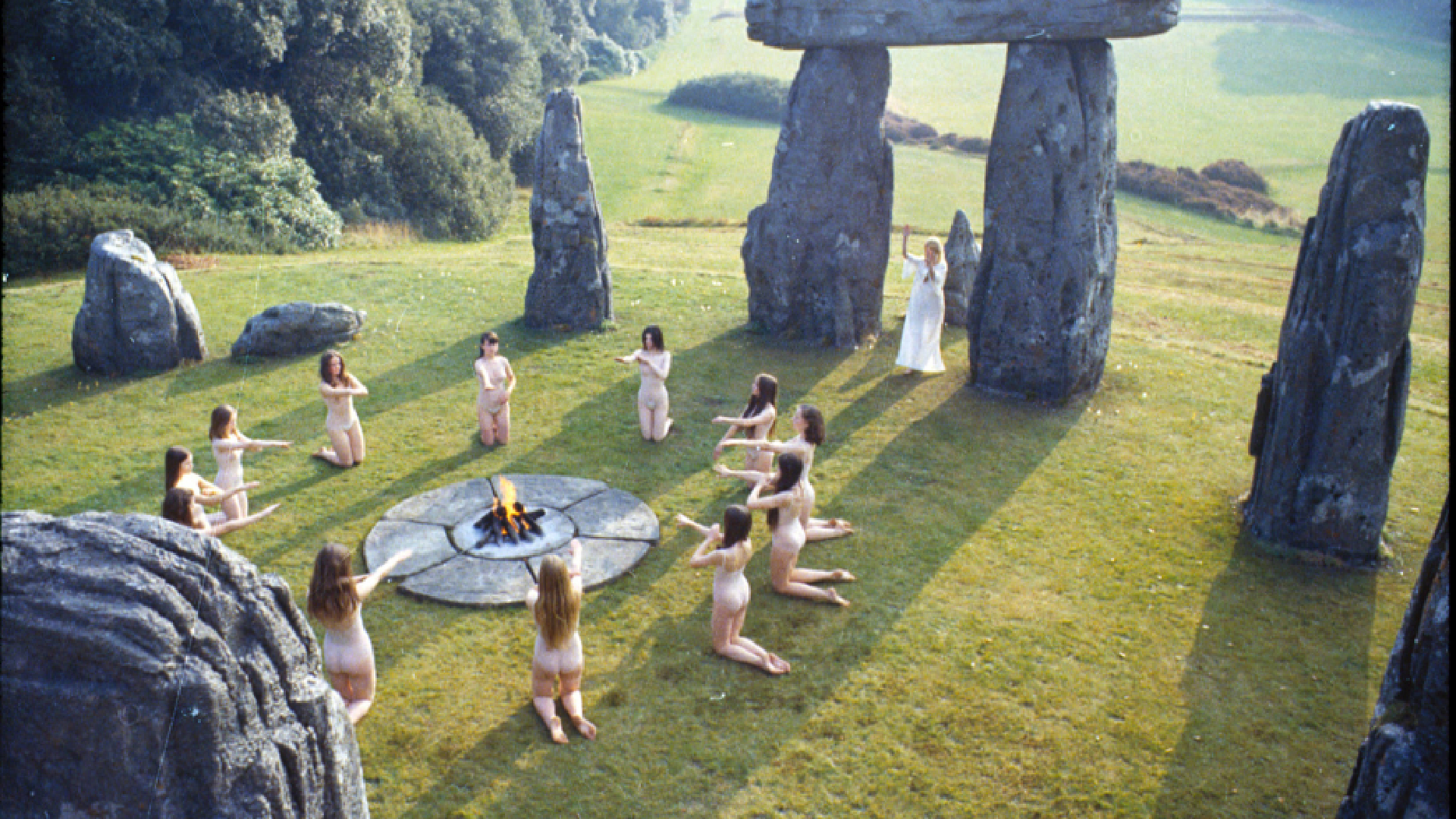The Wicker Man at 50: The consequence of cultural ignorance
On its 50th anniversary, we remember The Wicker Man as a perfect example of cultural ignorance, a theme that has been seen in the horror genre ever since.

“Come, it is time to keep your appointment with the Wicker Man,” says Christopher Lee’s Lord Summerisle in the infamous penultimate scene right before the detective meets his burning fate. At this point in the film, it is easy to view the residents of Summerisle, as the villains of this story, capturing an innocent man and sacrificing him for the good of their crops and their overall survival. But with time comes change, and as 50 whole years have passed since the release of Robin Hardy’s The Wicker Man, we can look at the film as an example of how being ignorant of cultures other than your own can have terrible consequences. Who was really at fault here?
Severe concequences

Now, we know how absurd this sounds, that a man murdered for simply existing in a place foreign to him, could be somewhat deserving of this retribution in any shape or form. And before anyone alerts the authorities, no we are not condoning murder, but we can’t help but root for the locals. This is a trend we have seen repeatedly show up throughout the five decades that have passed, both in the folk horror sub-genre and outside of that too.
In Ari Aster’s 2019 masterpiece Midsommar, we see a group of American students enter a quaint Swedish commune to research the group's peculiar way of life for a thesis project. Throughout the movie, the Americans treat The Hårga as something to study and judge, with one rifling through sacred documents, and another hoping to seduce a young girl. When each member gets their comeuppance we feel almost a sense of relief and justice.
A more extreme example lies in the horror flick that shook the early ‘80s, Ruggero Deodato’s Cannibal Holocaust, which sees a group of Westerners invade an isolated community in the Amazon, filming and taunting the settlers, and even going as far as assaulting one of them.
The Wicker Man is not as black and white in its morality. Edward Woodward’s Sargent Howie never actually does anything wrong, lawfully, which makes his demise even more shocking. However, we have to point out that he is warned off by the locals multiple times. Both Willow, the landlord’s daughter, and the school teacher advise him to leave before the celebration. May Morrison, who runs the post office, points out his cultural ignorance, stating: “Stop interfering with things that are no concern of yours.”
We have to remember that like in Cannibal Holocaust, the detective is dealing with a group isolated from the rest of the world, and that includes what we consider ‘normal’ in terms of values, morals, and ethics. If you have lived in a community with strict traditions your whole life, then it is probable you will continue these traditions, even if it means going against norms or the law.
Community vs law

This brings us to age-old questions of nature vs nurture, and community vs the law. How do we know what we are doing is wrong if we have been taught that it's right? The community that we are born into and the education we receive form our ethical values and moral compass.
Bringing all the latest movie news, features, and reviews to your inbox
This theme has been further explored in the genre. For example, in Eli Roth’s Green Inferno, we see a group of activists land deep in the Amazon where they soon find themselves being hunted by a cannibalistic tribe who are completely cut off from the outside world. As awful and brutal as this sounds, the tribe does not know any other way of living, they see the activists not as humans but as an outside alien force, making the barbarity a little bit more understandable.
However, there is an obvious other side to this debate that we have not yet addressed. The policeman’s death was inescapable and the cult planned to murder the unsuspecting officer all along, which they revealed at the end. While the locals have lured him here with the intent of killing Howie, they're doing it out of desperation. Their crops failed the previous year and they need a sacrifice to appease their gods out of fear of starvation. It's obviously an evil act, but one done out of fear and what they see as necessity.
The fear of the unknown

From the very start of the movie, we are almost forced to see the Summerisle residents as the other. We are placed in the shoes of conservative Christian Sergeant Howie, as he arrives on the small Scottish island of Summerisle to investigate the report of a missing child. Through his rather traditional, western eyes we see the residents of Summerisle’s sexual displays and strange pagan rituals. But we have to remind ourselves that this is only strange to the policeman (and some of us) because it is so far from how he lives.
“You’ll simply never understand the true nature of sacrifice,” says May Morrison, reminding Howie that he is an outsider and simply does not understand the pagan way of living. This lack of understanding causes Howie to fear the locals, and what he does not know.
The fear of the unknown has been explored in countless horror movies and gothic literature, spawning from novels such as Bram Stoker’s Dracula, where monstrosity and chaos are found in foreign lands and unfamiliar people. This way of thinking is attuned to our very being, which in a way justifies both Howie's and the residents of Summerisle's actions, at least in their minds. In this way of thinking we can conclude that The Wicker Man is not simply a story of good vs evil, or Christians vs pagans, but rather a lesson in being aware of cultural differences and our own prejudices - and a reminder to not stick our nose in where it is not wanted.
The Wicker Man 1973 is available to stream on BBC iPlayer in the UK and ready to rent on Prime Video in the US. Moving back into the 21st century, check out our selection of the best horror movies of all time and all of the upcoming horror movies on the way.
I am an Entertainment Writer here at GamesRadar+, covering TV and film for SFX and Total Film online. I have a Bachelors Degree in Media Production and Journalism and a Masters in Fashion Journalism from UAL. In the past I have written for local UK and US newspaper outlets such as the Portland Tribune and York Mix and worked in communications, before focusing on film and entertainment writing. I am a HUGE horror fan and in 2022 I created my very own single issue feminist horror magazine.


